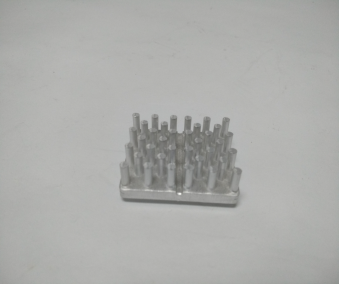The national high-tech enterprise Zhejiang Fengli Crushing Equipment Co., Ltd. has developed a complete set of ultra-low temperature micropowder preparation equipment that has recently obtained a national patent (ZL201420037961.5). The patent addresses the need for the crushing of some unconventional materials in the biopharmaceutical industry. The core technology is to prepare ultra-low temperature micropowders by first freezing the substances that are difficult to crush at room temperature to below the embrittlement point and then crushing them to the required fineness in the pulverizer. Degree, and the original ingredients will not be destroyed. The advent of this equipment will provide China's biomedical engineering industry with new equipment for the production of high value-added powder materials, solve the problem of crushing biomedical materials that are difficult to smash at room temperature, and will change the situation that has long relied on imports. With the development of industries such as foods and Chinese herbal medicines, the ultra-fine comminution of heat-sensitive materials, the purification technology and application of composite materials are becoming more and more widespread, and the fields of application continue to expand. The new ultra-fine particle materials and new products, which are hailed as "new materials for the 21st century", will promote the rapid development of China's chemical, biological, medical, environmental protection, automation technology and energy sciences, and will have a profound impact on human life. It is understood that many materials are difficult to be crushed at room temperature, or in the normal temperature smash process, the crushed material is heated, so that the crushed material deterioration, deformation and loss of nutrients: such as some food, beverages, traditional Chinese medicine crushed at room temperature, in the crushing process The heat generated in the process makes these materials go bad; for the more sticky and tough traditional Chinese medicinal materials (such as: rehmannia, wolfberry, etc.), when crushed at room temperature, it is easy to adhere to the inner wall of the grinding chamber or to form small balls, so that the basic Unable to proceed. Therefore, for these heat-sensitive materials, ultra-low temperature grinding technology is one of the most important crushing processing technologies. In response to market demand, Zhejiang Fengli has accumulated years of experience in producing various types of crushing equipment, and on the basis of introducing, digesting and absorbing German HOBER ultra-fine advanced powder technology, it has innovated and developed an internationally advanced level of cryogenic crushing equipment—Biomedical Engineering. The ultra-low temperature micro powder preparation complete sets of equipment. The innovation of this equipment lies in having a large energy-saving effect and good crushing characteristics; using a reasonable crushing gap, tool shape, crushing structure to achieve the ideal crushing effect; selecting the appropriate ultra-low temperature steel to ensure the stability of the equipment; using automation Control system to achieve a good man-machine interface control. The equipment can smash materials that are difficult to be crushed at room temperature, such as Chinese herbal medicines, high value-added foods, animal bones, and high-value biological materials. The fineness of these materials can be greatly improved through cryogenic crushing; and the brittleness of materials can be utilized. The temperature is different and selective comminution is performed, and finally each is separated into a pure single powder material. In particular, it has a good comminution effect on heat-sensitive and heat-perishable, easily decomposable substances such as foods, proteins, and pharmaceuticals. At the same time, selective comminution can be performed by using the difference in embrittlement temperature. Widely used in ultra-fine green food processing; deep processing of various types of Chinese medicine; western medicine raw material production with high absorption rate; development of multi-effect products; clean ultra-fine grinding; and various fields requiring ultra-fine grinding and maintaining the original nutrient composition .
A heat sink is a device that incorporates a fan or another mechanism to reduce the temperature of a hardware component (e.g., processor). There are two heat sink types: active and passive. The picture is an example of a heat sink with both active and passive cooling mechanisms.
More services we offer:
Product description:
Mosfet Heatsink,Aluminum Alloy Mosfet Heatsink,1000W Mosfet Heatsink,High Voltage Mosfet Timeplex Industrial Limited , https://www.hktimeplex.com
Besides of Metal Stamping Components,the Amplifiers metel chassises and Panels, we also complete solution for OEM/ODM Products & components, offer services of deep drawing services, EMI metal shielding parts, heat sink ,plastic molding products for custom, PVC fittings ,pvc conduit fittings, Plastic Injection Components, Metal Stamping Parts, home appliances accessories ,R/C drone and smart electronic toys etc.

The material used partly determines the extent of thermal conductivity. Copper and aluminum are the most widely used materials, though aluminum is the more common choice because copper is more expensive and heavier. Aluminum 6061 and 6063 are widely used with a thermal resistance of 166 and 201 W / mK, respectively.